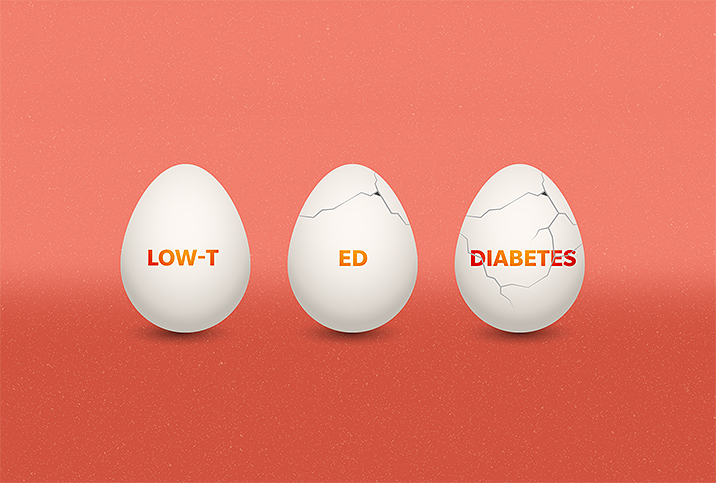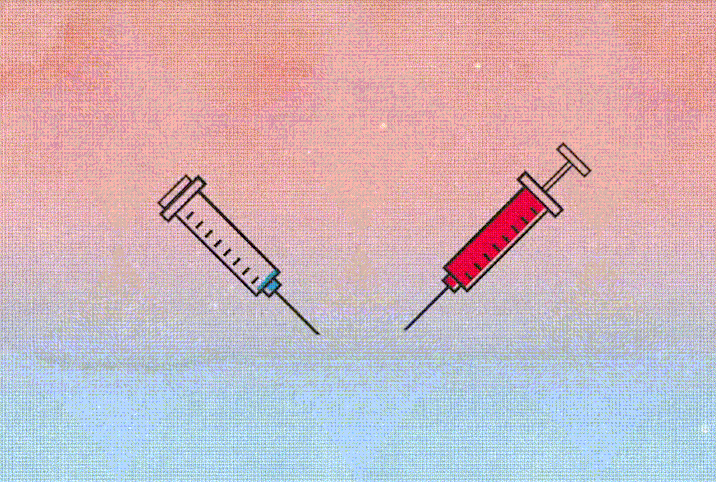What Can a Men's Health Clinic Really Do for Me?

As testosterone replacement therapy (TRT) has exploded in popularity over the past couple of decades, standalone men's health clinics seem to have sprouted up in solidarity.
Some of them are legitimate, while others leave men wanting, which begs a couple of questions: Why are men's clinics—especially those offering TRT—so popular? And are they beneficial?
Here's why such clinics have flourished, the red flags men should watch out for and why so many guys are choosing them in the first place.
The down-low on low-T
It might be easy to write off low-T as another trending topic, but it's not like low testosterone (hypogonadism) is an invented condition.
One study suggested nearly 40 percent of men ages 45 or older were hypogonadal. A more recent study intimated that age doesn't matter much: 37.4 percent of men in all age groups had low-T.
In men, testosterone is mostly produced by the testes but also by the adrenal gland. It is the sex hormone responsible for driving sperm production, secondary body hair growth, muscle development, sexual desire and the deepening of the voice at puberty.
But it does a lot more than that. As men age, their testosterone production naturally declines about 1 percent per year after age 30. It declines more quickly after age 50, and by age 80, it may be as low as 20 percent to 50 percent of its peak. Most men experience a testosterone deficiency at some point.
The symptoms of low testosterone include:
- Low libido (sex drive)
- Erectile dysfunction (ED)
- Fatigue
- Loss of muscle mass
- Fat gain and difficulty losing weight
- Moodiness
- Brain fog
- Memory issues
In part as a reaction to the overhyped benefits some clinics tout—along with a general lack of understanding among the public about how testosterone really works—some medical professionals are hesitant to prescribe testosterone.
"Most urologists and endocrinologists never learn how to treat testosterone because that's a very taboo topic," said Amy Pearlman, M.D., a men's health specialist and co-founder of Prime Institute in Fort Lauderdale, Florida. "Unless you find someone like me or someone else who has a men's health/sexual health practice, a lot of people don't like doing it."
The explosion of standalone men's health clinics makes sense in this context. Pearlman said many of the patients she sees encounter resistance when they ask their family doctor about testosterone and/or hormone replacement.
"I've seen plenty of patients who have to beg their healthcare provider just to get tested for testosterone," Pearlman said. "If they can't get the help they're looking for, then they'll go to the men's health clinics because the men's health clinics are like, 'Come on in! We'll help you out.'"
Benefits, yes, but buyer beware
Some men's clinics are helpful. They offer convenience and guided treatment. Many accept insurance. They conduct bloodwork and an initial examination.
The good ones keep testing your blood and hormone levels to make sure the treatment is working and to see if the dosage needs to be adjusted.
Look around for a clinic that considers the following actions to be standard:
- Checks your testosterone levels before beginning treatment, preferably twice, with a confirmatory test, as well as after starting treatment
- Asks about your lifestyle (exercise, diet, sleep, stress)
- Gives a hematocrit test to check your red blood cell ratio, because high hematocrit levels can cause a potentially dangerous thickening of the blood when on TRT
- Talks with you about fertility goals before starting any treatment, because TRT shuts down your natural testosterone production and affects your ability to make sperm
- Charges a fee you are comfortable with
- Teaches you how to do your own injections at home
That's what the best ones do. However, men should still watch out for certain red flags:
No mention of fertility issues
Taking a careful, clear-eyed approach to testosterone replacement therapy is just as important as with any other medical decision.
For starters, you need to be very cautious about beginning TRT if you plan to start a family soon. Taking supplemental testosterone causes your body to stop producing it, which can mean fertility issues down the road. You can become permanently infertile if you're on TRT for too long.
"The longer you've been on testosterone therapy, the harder it is for your body to kick-start that process and go back to normal," said Neel Parekh, M.D., whose men's health and fertility practice is affiliated with Cleveland Clinic. He added that patients who have been on TRT for five or 10 years, for example, have difficulty getting back to 100 percent production of their own testosterone.
Fortunately, clinicians have options to preserve fertility.
"One way we help people who want to maintain their fertility is we might use a drug called clomiphene, which helps your body produce more testosterone," said Jack Jeng, M.D., chief medical officer of Hone Health, an online men's health clinic based in New York. "Another way is to do a low-dose testosterone with clomiphene to boost your testosterone levels."
Inflated costs
Men's clinics are for-profit ventures. They need to make money, so they're going to charge a premium for services and treatments. If you're willing to pay for convenience, the markup shouldn't be a problem. Just know exogenous testosterone doesn't cost much.
"The medications don't cost a lot of money," Pearlman said. "Testosterone is cheap. I put a lot of people on injectables, because even if you don't run it through insurance or insurance doesn't cover it, it's really cheap. If you're paying several hundred dollars a month, that's more than any of those medications require."
Pushier clinics may try to sell men with low testosterone their own brands of vitamins and amino acid supplements without appearing to give them a choice between these and other medications.
"I have plenty of patients who are not worried about future fertility and they don't care if their testicles shrink, and so they say no, they don't need to be on hCG," Pearlman said, referring to human chorionic gonadotropin, a hormone that stimulates sperm growth. "So that's one less medication I can put him on. But with a lot of these clinics, they're not given that option."
Too much dependency on the clinic
Another red flag is when clinics insist you come in to get your weekly shot or do long-term monthly checkups. Some people might not like giving themselves a shot every week, so having someone else do that for them regularly might be desirable—and comfort level can mean a lot.
While carefully calibrating the formulation and dosage is crucial to getting safe and effective testosterone treatment, most clinicians can teach you how to do your own injections and shouldn't require frequent in-office visits.
"If you're on a decent therapy, you don't need monthly follow-up," Pearlman said. "And I also put people on a safe dose where I'm not worried about some of the side effects. If you're relatively healthy, it's maybe three to six months later, depending on what other conditions are being managed. But if there's a practice that's trying to get you into the clinic on a very frequent basis, that doesn't make sense."
Lack of lifestyle counseling
The most helpful men's clinics are going to talk with you about lifestyle changes you can make to naturally boost your testosterone. Sleeping right, exercising, eating healthy and reducing stress are all known to boost testosterone levels.
Often, getting started is the difficult part.
"When people come to us and their testosterone is low, they have no motivation, no energy," Jeng said. "It's really hard to tell somebody to go exercise when they feel that way. It's kind of a chicken or the egg thing. So if we can get them to start feeling better, that gives them the motivation, strength and energy to go and do some of those things. And as they improve their health, they may be able to cut back or get off of testosterone completely. To us, that's a success story."
Conclusions
If you're not getting the help you need from your healthcare provider, you'll naturally want to seek help elsewhere. That could be at a physical practice or through a telehealth provider. At the end of the day, that may be the biggest lesson the public—and the medical community—can learn from the proliferation of men's health clinics.
At the same time, it's vital to approach testosterone replacement therapy with the same seriousness and thoughtfulness you would approach any other medical decision. Have clear expectations and a realistic understanding of the risks, including infertility, and benefits.
"I think the message is just that if we don't expect men to go to these men's health clinics, then we have to do better at treating men's health concerns," Pearlman said. "The men want help and they're going to go where they can get it. They don't want to have to beg for it. They don't want to see a doctor and have to beg to even check their testosterone."


















